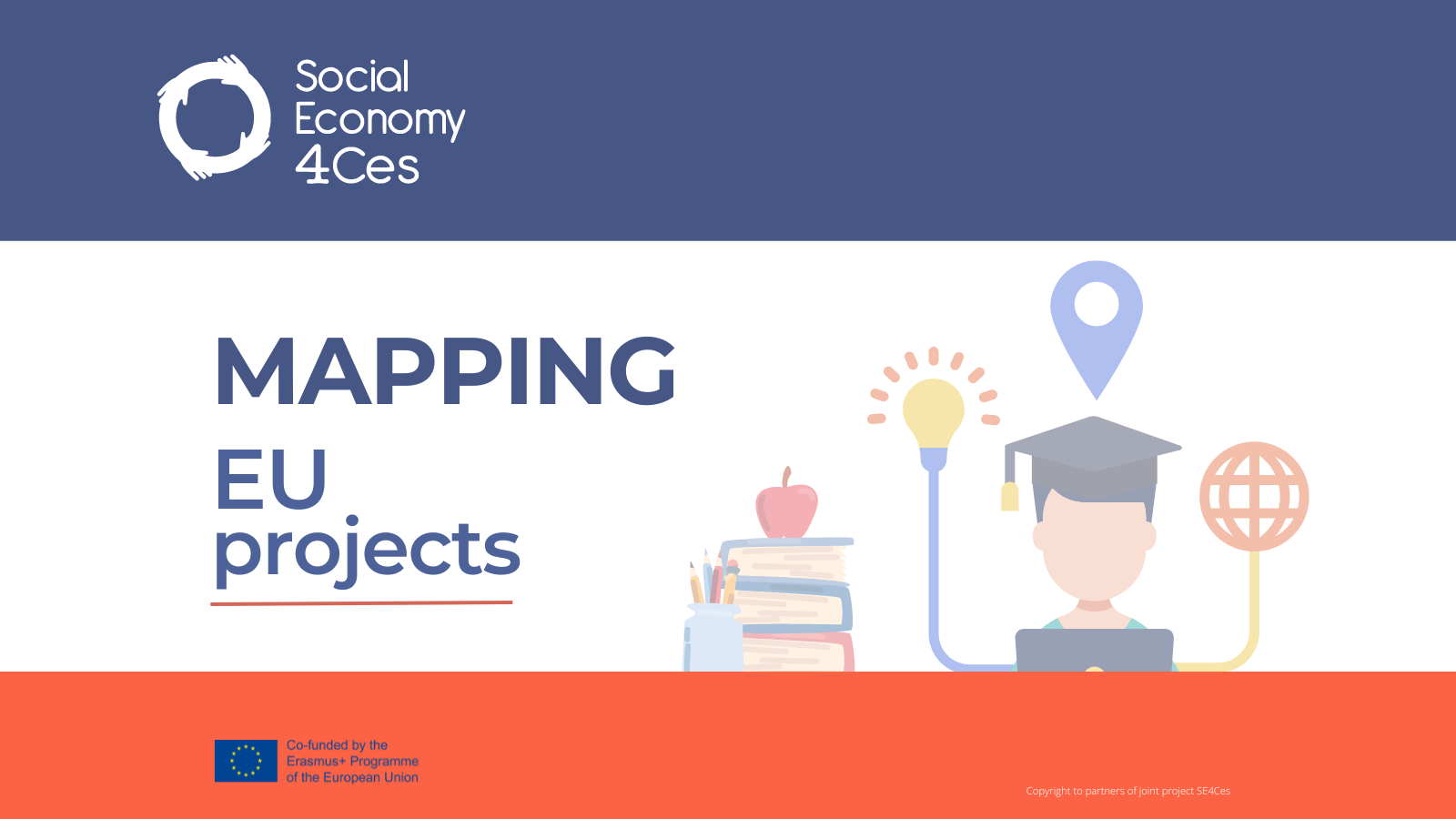Bridging together Social Economy (SE) actors and Higher Education institutions (HEIs) through interesting EU partnerships: What is already out there?
This report provides a series of identified EU projects that constitute meaningful partnerships for the promotion and embeddedness of SE into HE educational systems among Social Economy (SE) organisations, universities and local actors. Although in principle their specific objectives may differ from one project to another, they share a common vision:
- to address existing challenges related to SE fields and to have SE as its core, even if their purpose slightly expands to fields that are related to SE principles (such as the concept of sustainable development and community development);
- to advance the academic programs with real societal issues and to promote the exchange and co-creation of knowledge between universities and SE agents.
- to promote the collaboration of HEIs with SE organisations and/or local community actors
On a final note, although the mapping of EU projects promoting collaborative and multistakeholder relations in the field of SE proves that many initiatives have offered an added value for the promotion of SE principles, these are of relatively narrow SE scope and their total number still remains limited.
‘Service Learning: an effective teaching methodology for Social Economy related studies’
The next part of the reportsheds light on the Service Learning (SL) application in HEIs across Europe and beyond, with the main focus on university programmes of SE area. According to the gathered information, SL is in its infancy in European universities although it is acknowledged as “as one of the most suitable learning methods for social entrepreneurship education, as students gain real-life experience with a social venture as part of a SL project while generating social value in their community”. Regarding the SE area, SL seems to be recognised as an effective teaching methodology, as it incorporates a practical aspect in the learning experience, a reflective approach, a community-based service as well as a beneficial experience both for the student and the participating enterprise/SE organization. However, although SL and SE as concepts generally co-exist within the university environments, there is little or insufficient collaboration between these two approaches and SL is still not widely common in SE HEIs.


